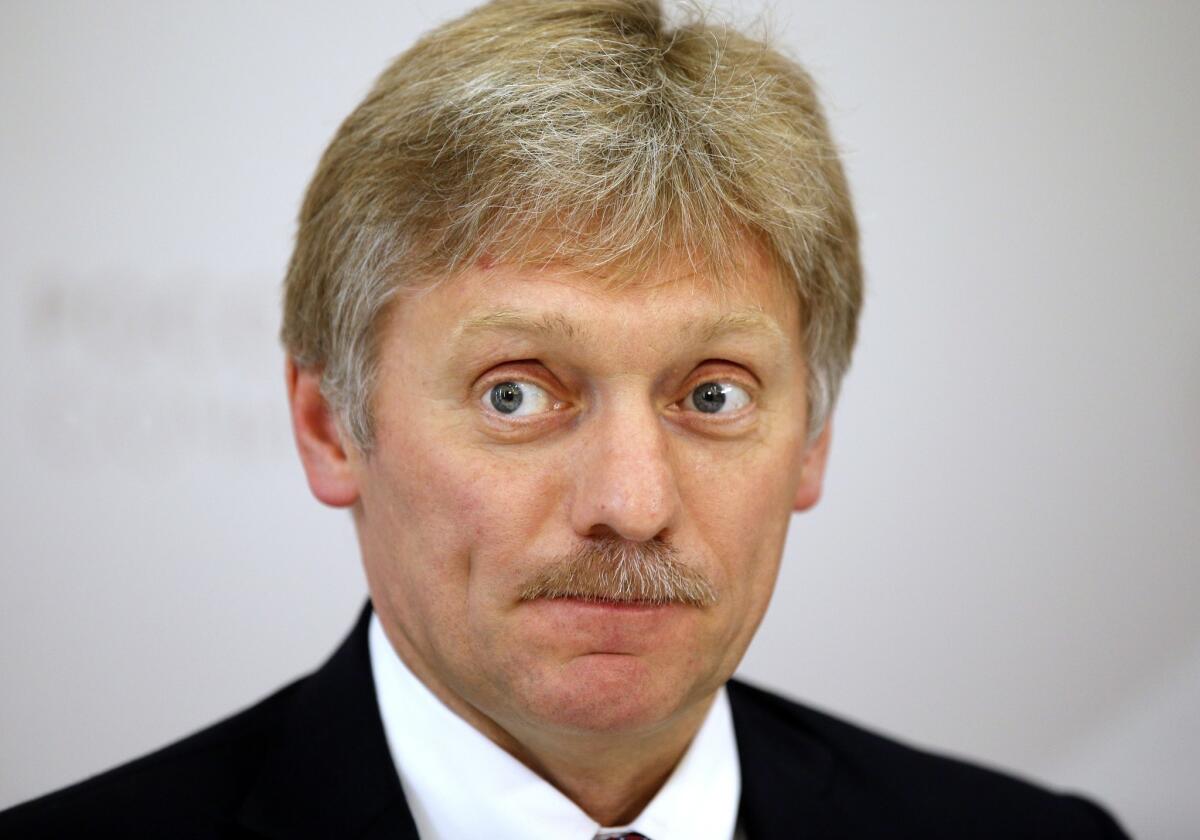The view from Moscow: Flynn a victim of ‘Russophobia’

Russian President Vladimir Putin’s press secretary Dmitry Peskov listens for a question during his news conference at the ASEAN Russia summit, in the Black Sea resort of Sochi, Russia on Thursday, May 19, 2016.
- Share via
The Kremlin had no official comment Tuesday on Michael Flynn’s resignation as President Trump’s national security advisor. But unofficially, Russian officials heaped scorn on the United States for the “Russophobia” that, in their view, drove Flynn from office.
“This is a domestic issue of the United States,” Kremlin spokesman Dmitri Peskov told reporters, declining to comment further on the resignation, which came after reports indicated that Flynn had discussed U.S. sanctions with the Russian ambassador to the United States in December, before Trump took office. Flynn had steadfastly denied having had any such discussion about sanctions.
On Friday, Peskov had said Flynn and Russian Ambassador Sergei Kislyak had never discussed the lifting of the sanctions.
An outspoken Russian senator blamed Western media for vilifying Flynn.
“Flynn was forced to leave after an aggressive campaign by U.S. mainstream media,” Alexei Pushkov tweeted Tuesday in English. He cited Tuesday’s New York Daily News headline -- “Russian for the exit” -- and said that “tells it all.”
“‘Flynn is out, but the Russian problem remains in the Trump White House,’ write his enemies. The expulsion of Flynn was the first act. Now the target is Trump himself,” Pushkov said in another tweet.
A top Russian official in charge of international affairs praised Flynn and compared anti-Russian sentiments in Washington to the dystopian world of George Orwell.
“Unlike many other top-level Americans, Flynn was open for a dialogue, has been to Moscow and, as it turns out, was in touch with our ambassador in Washington,” said Konstantin Kosachyov, who heads the international affairs committee in the upper house of Russia’s parliament. “But even a readiness for a dialogue with Russians is seen in Washington as a thought crime,” he said, referring to a term from “1984.”
“Either Trump has not found an independence he was looking for, and is being gradually (and successfully) cornered, or Russophobia has infected the new administration top down,” Kosachyov concluded.
Mirovalev is a special correspondent.
More to Read
Sign up for Essential California
The most important California stories and recommendations in your inbox every morning.
You may occasionally receive promotional content from the Los Angeles Times.













